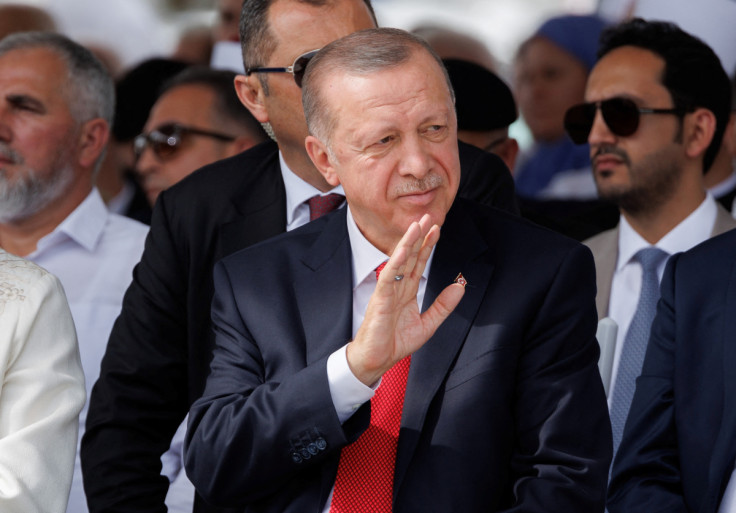Russia Willing To End Conflict In Ukraine As Soon As Possible: Erdogan
KEY POINTS
- Putin has blamed Ukraine for rejecting the negotiation process
- President Erdogan has been pushing hard to leverage Turkey's influence in the Russia-Ukraine conflict
- Unlike other NATO countries, Turkey has preserved its relationship with both Moscow and Kyiv
At a time when the Russian invasion of Ukraine is expected to be at the top of the agenda as world leaders gather in New York for the U.N. General Assembly without much to end the war, the Turkish President has said that Moscow is willing to end the conflict in Ukraine as soon as possible.
Talking about the discussions he had with Russian President Vladimir Putin in Uzbekistan during the Shanghai Cooperation Organization (SCO) summit, President Erdogan in an interview with PBS Monday, said that the Russian leader conveyed to him his willingness to end the conflict as soon as possible.
The Turkish president is currently in New York to attend the 77th session of the UN General Assembly.
Asked how quickly he saw the conflict ends, the Turkish president said "most importantly, Russian attitude will be very, very important here."
"The way things are going right now is quite problematic," PBS quoted the Turkish president as saying. "I think a significant step will be taken forward," adding that all we "want to see is to end this battle with peace."
The Russian President made a similar observation during his bilateral talks with Indian Prime Minister Narendra Modi on the sidelines of the same summit. Told by the Indian prime minister that "today's era is not an era of war," the Russian president said:
"We will do everything to stop this as soon as possible. Only, unfortunately, the opposing side, the leadership of Ukraine, announced its rejection of the negotiation process and stated that it wants to achieve its goals by military means."
International efforts apart, Turkey's pursuit of its national interest in the Russia-Ukraine conflict is seen as a masterclass in diplomatic and geostrategic maneuvering.
Even as Turkey has been mostly convergent with its Western allies in supporting Ukraine, at the same time avoided burning bridges with Russia.
President Erdogan has been pushing hard to leverage his country's influence in the complexities of the Ukraine war, even offering to mediate in the standoff over a Russian-occupied nuclear power station in war-torn Ukraine that has raised fears of an atomic disaster.
Experts believe that since the start of the conflict, Turkey has succeeded in preserving its relationship with both Moscow and Kyiv without endangering its own geostrategic calculations.
Ankara shares close defense cooperation with Ukraine, with the country's armed forces using Turkish drones, Baykar as an effective weapon to attack Russian targets, and at the same time tactfully allowed passage to Russian weapons through the Bosporus strait.
The Turkish president's diplomatic wins, capped by the deal to resume Ukraine's grain exports, are also seen as a blueprint of his domestic strategy for elections due next year.
Following its participation at the SCO summit, Turkey, which has been a dialogue partner of the group since 2013, announced that it will seek full membership, making it the first NATO member nation to join a China-led bloc that includes Russia.

© Copyright IBTimes 2024. All rights reserved.






















